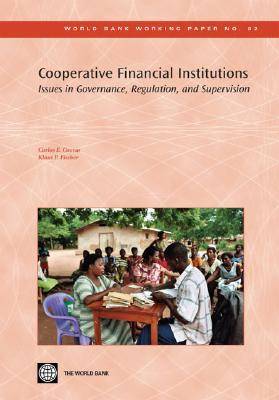Cooperative financial institutions (CFIs) are among the poorly understood entities in financial markets. They include diverse member-owned financial intermediaries referred to as credit unions, savings and credit cooperatives, cooperative banks, and other terms that differ across regions of the world. Their institutional structure and governance, legal and regulatory status, and scale and services portfolio also vary widely across regions and especially between industrialized countries and developing economies. A most basic common denominator is that they collect deposits and do business often solely with members. Existing literature already supports the notion that CFIs serve many poor people. This paper addresses topics on which an agreement is necessary to arrive at consensus guidelines or "principles" of regulation and supervision of cooperative financial institutions (CFIs) in developing countries. Three main topics covered are: i. the fundamental structure of the sector in terms of its internal (micro) and inter-CFI (macro) organization, with a focus on the agency conflicts inherent in the mutual structure, the extent to which they contribute to failure risk, and whether and how these conflicts are controlled by existing governance mechanisms; ii. the existing legal frameworks in an international context, their origins, and the implications for the functioning of CFIs; and iii. the regulatory frameworks under which CFIs operate and the different propositions by stakeholders about what should be an appropriate regulatory framework and an effective supervision mechanism.
- ISBN10 082136684X
- ISBN13 9780821366844
- Publish Date 13 July 2006 (first published 30 June 2006)
- Publish Status Active
- Publish Country US
- Imprint World Bank Publications
- Format Paperback
- Pages 70
- Language English
